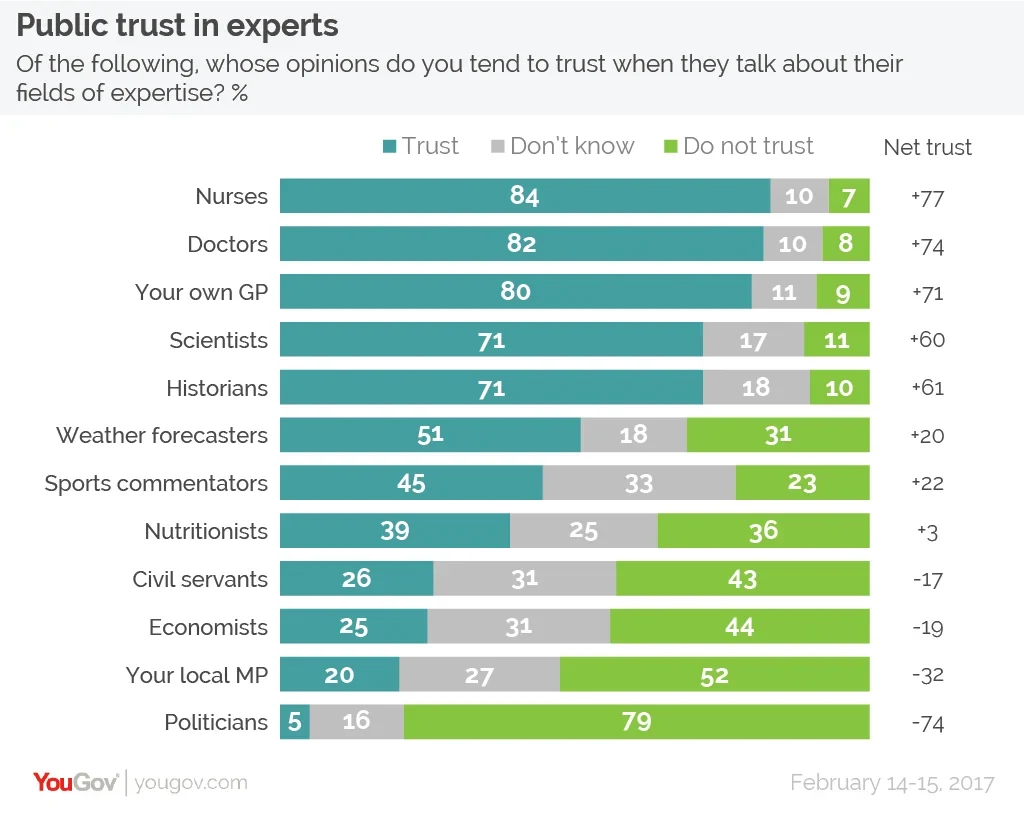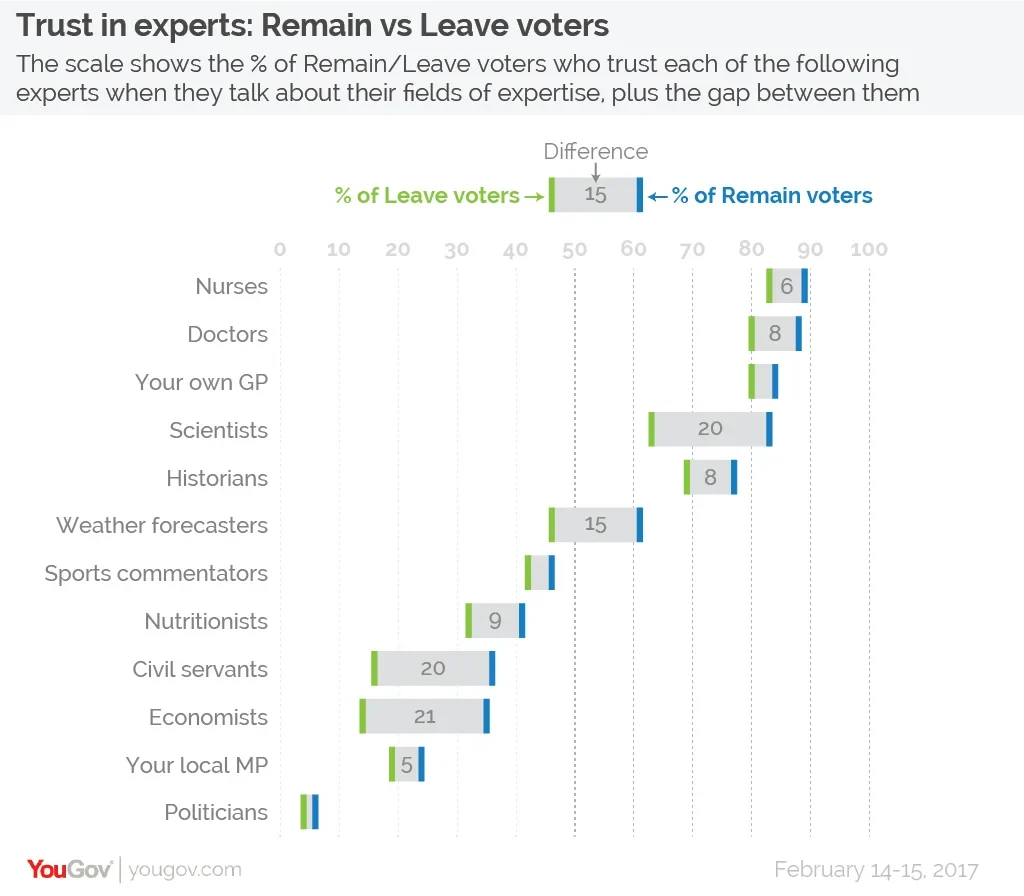YouGov research shows that class and politics seem to be the biggest indicators on whether people trust experts
For many people, the most memorable comment of the EU referendum campaign will have been Michael Gove’s remark on experts.
Appearing on a Sky News Q&A session about three weeks before voting day, Gove proclaimed that “people in this country have had enough of experts”.
The comment was controversial, but with the majority of experts backing the case for Britain remaining in the EU the eventual vote to leave would seem to have borne out Gove’s case.
Now a new YouGov survey has tested how far the British public trust various different types of experts when they talk about their own fields of expertise.
(It is worth pointing out that Gove’s own experts comment was relatively narrowly defined – “experts from organisations with acronyms”, whereas we have asked about a broader selection of experts).
At 84%, the group of experts the public was most willing to trust was nurses. The opinions of doctors were almost equally trusted, at 82% for doctors in general and 80% for people’s own GP.

Scientists and historians also performed well, with 71% of people saying they trust them when they talk about their own areas of expertise.
At the other end of the scale politicians in general were the least trusted, with just 5% of people trusting them – although this does increase to 20% for people’s own MP.
Also coming off poorly were civil servants (26%) and economists (25%).
Politics and class divide opinion on experts
We already knew that during the referendum campaign Leave voters were unlikely to trust any experts’ opinions on whether or not Britain should leave the EU. But it would appear that Leave voters’ distrust of experts extends far more widely.
The results show that Leave voters are less likely than Remain voters to trust every single type of expert listed. This trust gap was especially pronounced for certain types of experts: Leave voters are 21 percentage points less likely to trust economists than Remain voters, 20 points less likely to trust scientists and civil servants and are even 15 points less likely to trust weather forecasters.

In terms of party politics, those who voted for the Conservatives and UKIP in 2015 were markedly less likely to trust experts than those who voted Labour or Lib Dems, with UKIP voters especially likely to be more distrustful.
Class also seems to be a strong indicator of whether a person is likely to trust experts’ opinions. Although the difference between the classes is slightly less pronounced, working class people (those in the C2DE social group) are less likely to trust experts than middle class people (those in the ABC1 group).
Photo: PA








